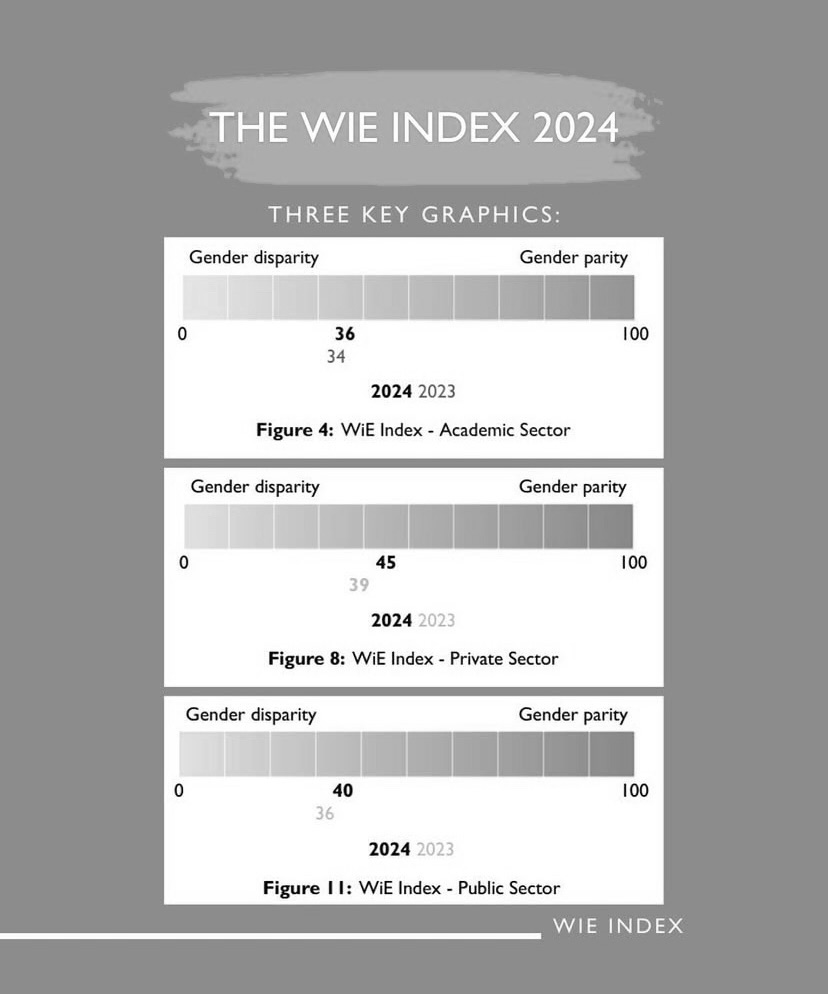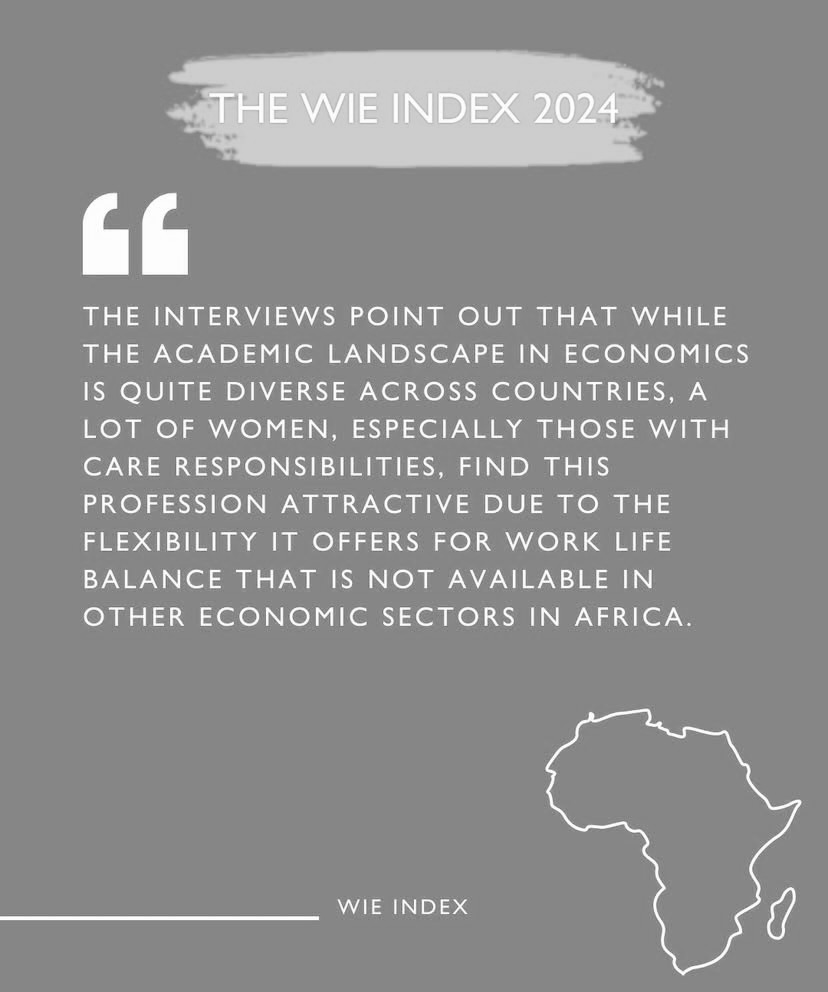Breaking Up the Glass Ceiling: Female Leadership in Economics ft. Kaneta Zillur
In this month’s episode, we spoke with Kaneta Zillur, Head of Research at the Women in Economics Initiative (WiE)—a nonprofit promoting gender equality in economics. Kaneta discussed WiE’s mission, the Women Economics Index, and its role in tracking gender representation across academic, private, and public sectors globally. This year’s spotlight topic: the challenges faced by female African economists and the broader importance of gender equality in leadership.
The Women in Economics Initiative & Women Economics Index
Founded in 2019, WiE has grown from seven founding members to over 60 active members and a global community of over a thousand followers. Kaneta has been involved with the initiative for four years.
The Women Economics Index measures gender representation in leadership positions across three sectors—academic, private, and public—assigning a score from 0 to 100 (0 = no gender diversity, 100 = gender parity). Recent editions have also featured Spotlight studies, the most recent one on the African academic sector based on key informant interviews conducted to explore qualitative aspects of gender inequality.
Kaneta detailed the data collection process, which involves manually reviewing websites of top institutions around the world between June and October each year. She emphasized the consequences of low female representation in economics: a lack of role models for future generations and limited diversity in perspectives when it comes to academic structures, policy decisions and business models. Interestingly, in 2024 the private sector has the highest representation and has seen the greatest increase in female leadership compared to previous years, whereas academia continues to lag behind. One explanation for this phenomena was the "leaky pipeline" effect—where women tend to leave their careers at higher rates than men as they progress professionally through their career.

African Women’s Representation in Economics
Surprisingly, according to the regional analysis, Africa has the highest share of women in top economics departments globally, with 53% representation, compared to 19% in North America and 27% in Europe. However, Kaneta cautioned that this result is skewed, as the data is drawn only from Egypt and South Africa, where female representation is relatively high compared to the rest of the continent. A more comprehensive regional analysis is needed for a clearer picture.
Kaneta and Kira discussed the limitations of the dataset, including its focus on top institutions, which may not fully capture broader trends in Africa as well as in the global context. The spotlight interviews provided qualitative insights into women’s experiences, highlighting financial barriers and caregiving responsibilities as key challenges. While academia offers greater flexibility, making it more accessible to women, the study does not capturedata from a wider range of institutions which would be needed to reflect regional disparities.

The Crucial Role of Representation
Kaneta emphasized the importance of gender diversity in leadership, stating that normalizing women in these roles broadens perspectives as well as positively impacts future generations. However, she also acknowledged that some female leaders may still uphold patriarchal values that limit women's progress.
The discussion highlighted the significance of mentorship programs, such as WiE’s mentoring initiative, in encouraging young women to pursue and sustain careers in economics.
Kaneta also stressed the need for research on gender equality in Asia, where data is scarce, and expressed interest in exploring representation in countries like Bangladesh. She advocated for a greater focus on intersectionality, including non-binary individuals, and a cultural shift to amplify voices from the Global South across academia, public policy, and the private sector.
Get Involved & Learn More
Checkout the interview at EchoBox Radio
Explore the Women Economics Index
Check out the WiE’s Mentorship Initiative
Follow WiE on Social Media
Support Gender Equality in Economics: Share this episode and start a conversation!
A huge thank you to Echobox Radio for hosting us and to the Student Impact Center for supporting us.
#WomenInEconomics #GenderEquality #EconomicDiversity #LeadershipMatters #WomenInLeadership #BreakingTheGlassCeiling #DiversityInEconomics
